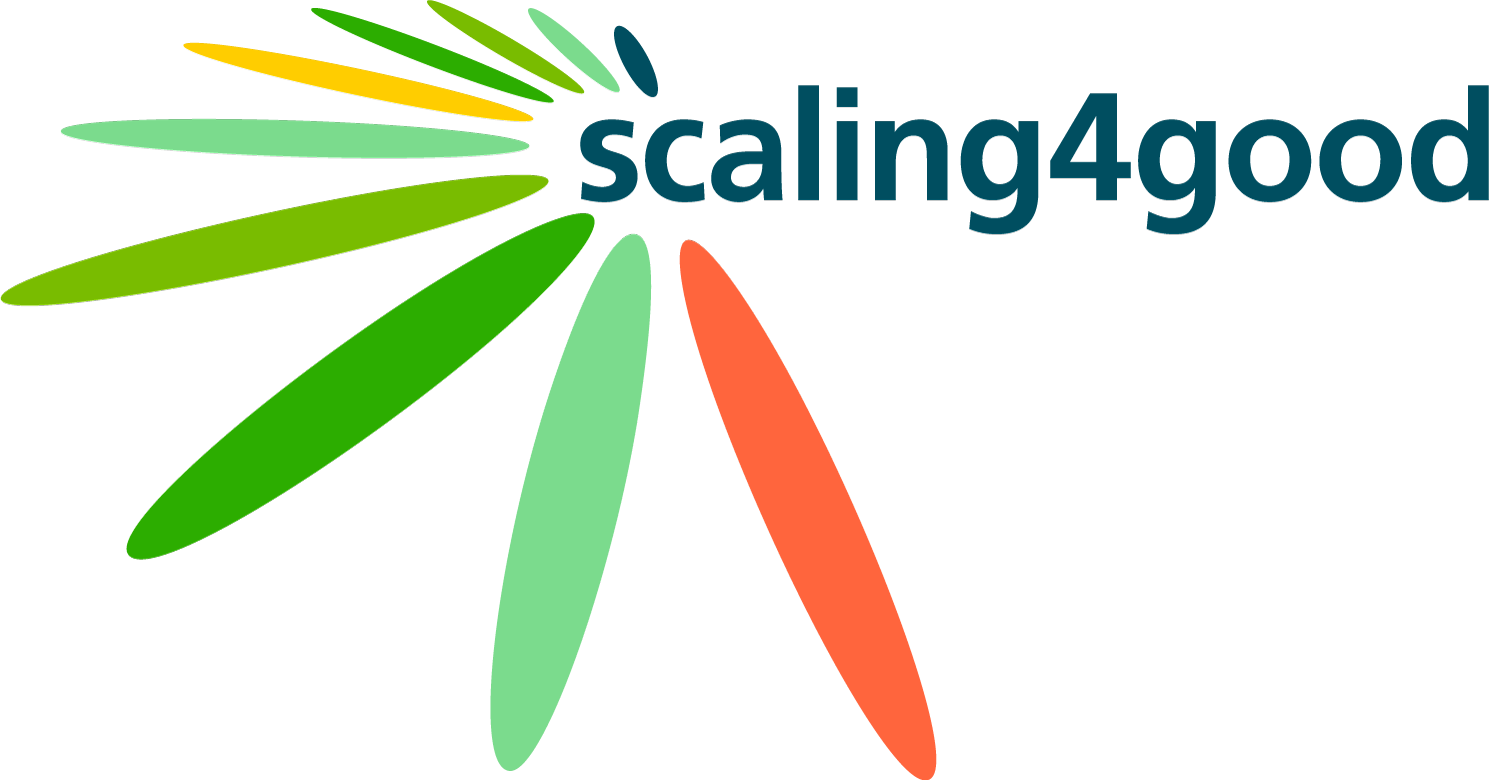Scaling good impact matters
What is scaling impact?
Scaling the impact of initiatives contributing towards a good future for humanity is an iterative, non-linear process guided by a succession of questions allowing us to identify where do we stand, what we know and what we don’t, and what the next meaningful steps within the given context are.
When scaling impact there are two approaches. One stems from starting from a completely blank sheet with a systems analysis and identification of levers of change. The other one comes from taking something that you are already working on – and whilst system understanding is still important – it takes what initiative you have as a starting point and looks where to go from there.
Know-how on scaling impact allows us to identify what to scale – an idea, project, organization, service -, if the time is appropriate – based on the people, resources, and structures available -, and which scaling approach fits best. Scaling approaches can be: franchising, replicating, collective impact initiatives, open knowledge, coordinated knowledge sharing, movement creation, decision-making reframing, and many more.
Typically there is a trade-off between the level of control of the initiators over the project and the speed of scaling – for instance when a project opens up for replication, it can scale fast, but the initiators have less control over the evolution of the scaled projects compared to scaling slower “in house” through organizational growth.
In the process of navigating the art of scaling good impact frameworks of system theory, system transformations, behaviour change, culture evolution, leadership, contemplative studies, neurosciences, and sociology can be applied.
Why scaling impact?
Human civilisation is at stake
Economic growth within a capitalist system in a globalised world has led to the depletion of natural resources and the transgression of planetary boundaries. Since the middle of the 20th century, the ecological footprint of humans has become so important that the entire Earth system is influenced by our activities: we have entered the Anthropocene era.
At scaling4good we are conscious that our planet has boundaries that limit Earth’s capacity to keep the ecosystems, and our cultures, in a “safe operating space”. The planetary boundaries of biodiversity integrity, the phosphorus, and nitrogen cycles have already been crossed. And the boundaries of climate change and land-system change are soon entering the high-risk zone too.
Transgressing one or more boundaries may have catastrophic consequences, due to the high risk of crossing thresholds – also called tipping points – that will trigger non-linear, abrupt environmental changes on a continental- to planetary-scale systems.
Current innovation doesn’t lead to whole-system changes
The urgency to act is high. Keeping our planet and societies in a safe operating space requires more than incremental improvements. Radical transformations leading to whole system changes are necessary. Speeding up the type and pace of change is required in the economic and social domains, in our values and belief systems, in policies and social equity.
Thus far, a lot of hope has been placed in research and development, and innovation which reflects a wish to believe in technocratic solutions and the fear of larger changes. Whilst we agree that social innovation (innovation that is brought about in a collaborative way and addresses societal challenges) is key to societal transformation we witness that in the current political discourse technological innovation is still a central focus.
At the same time, it is known that innovation itself does not lead to impact, but that it is the scaling of impactful and transformative solutions that lead to whole system changes. So many prototypes are advertised as successes, yet few of these succeed to scale and to be impactful. One of the main reasons for this is that there is no one-size-fits-all method to scale impact and no framework to capture the lessons learned in one place in order to replicate them in another.
The good news
Many local actors, individuals, NGOs, political leaders, and entrepreneurs have embarked on a journey to transform the way we use our resources, the way we produce and consume, the way we live and organise ourselves as a society.
The circular, sharing and local economies, renewable and smart energy systems, new democracy models, regenerative agriculture and cultures, lifestyles valuing in different ways time, ownership, relationships, and meaning, are all paving the way to a new, exciting, and more beautiful era.
However, these local actors remain often isolated and their initiatives are not reaching scale. We are convinced that we can accelerate the pace of transformation to avoid “reinventing the wheel” and being trapped in a competitive, win-lose incentive structure and mindset if the lessons learned could be more easily shared, and if more effort could be devoted to coordinating actions.
